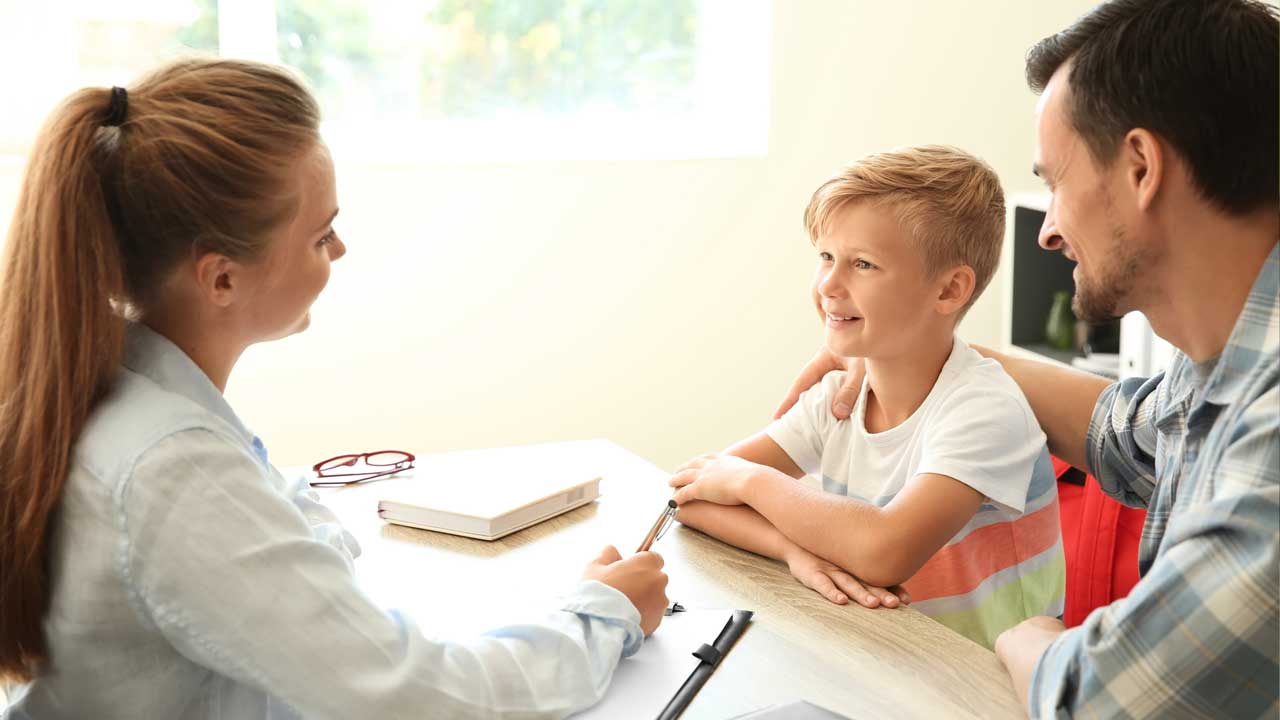
01 Mar Positive, sustained relationships promote social skills, reduce problem behaviors in early childhood
An Early Learning Network study led by researchers at the University of Nebraska–Lincoln strengthens the case that positive, sustained relationships for young children, both within classrooms and across home-school settings, are a key factor in promoting social skills and reducing problem behaviors.
The longitudinal analysis followed children from pre-K to first grade to better understand how student–teacher and parent–teacher relationships predicted developmental outcomes, with a focus on understanding interactions over time.
Findings showed children’s relationships with teachers were associated with social-behavioral success immediately, year-to-year and across the pre-K to first grade transition, and that sustained relationships between parents and teachers during the transition predicted improved social skills and fewer problem behaviors over time.
Why it matters
Quality relationships in early childhood promote children’s long-term success and well-being.
It is critical to understand the immediate and cumulative effects of children’s relational experiences over transitions from pre-K to the early elementary grades to inform educational practices that support optimal development.
We have an opportunity to enhance student–teacher and parent–teacher relationships through intervention and policy to boost children’s learning and social-behavioral outcomes.
“Relationships during children’s early schooling years are powerful influencers of children’s learning and development,” said Lisa Knoche, co-principal investigator on the Nebraska study. “Student–teacher and parent–teacher relationships are malleable and can be strengthened to support positive social skills and prevent problem behaviors in early childhood. These productive skills will promote the best sustained outcomes for children into the future, particularly among children experiencing low-income conditions and those from historically marginalized groups.”
The study
The Nebraska team’s study, published by Early Education and Development, examined how concurrent (within each academic year), year-to-year, and sustained student–teacher and parent–teacher relationships predicted children’s social skills and problem behaviors from pre-K to first grade in a sample of 233 children enrolled in low-income public schools and agencies, representing both rural and urban communities.
The study was unique in that it focused on understanding how relationships contributed to children’s social-behavioral performance from the joint perspective of parents and teachers, both at home and at school, and between these settings.
Key findings
Overall, positive, sustained relationships between both students and their teachers, and parents and teachers, from pre-K through first grade predicted social-behavioral benefits.
1. Children’s relationships with teachers were associated with social-behavioral functioning immediately and over time.
- Immediately (within a grade): Children whose teachers reported having higher levels of closeness were reported to display greater levels of social skills than children for whom such close relationships were not experienced.
- Over time (across pre-K to first grade): Children who had consistent close relationships reported by teachers across the Pre-K to Grade 1 transition benefited.
- Children whose teachers rated their relationships as high in conflict, were identified as having more problem behaviors and fewer social skills within a school year; reports of high conflict by teachers across the transition were also detrimental.
2. Parent–teacher relationships as reported by teachers predicted children’s positive social-behavioral functioning in the same year.
- Children were reported to display greater social skills and fewer problem behaviors during years that their teachers rated more positive affective relationships with parents.
3. Parents’ reports of close relationships with teachers predicted more problem behaviors in the following year.
- This finding was counter to the expectation that positive parent-teacher relationships would predict fewer problem behaviors in the following year.
- It is possible parent and teacher interactions to discuss challenging behaviors at one point in time created a positive connection yet remained insufficient to prevent the recurrence of problem behaviors — which persisted — one year later.
4. Sustained, positive relationships between parents and teachers during the transition from pre-K to first grade resulted in greater social skills and fewer problem behaviors over time.
- Parent ratings of relationships with teachers from pre-K to first grade predicted lower problem behaviors over time. These mirror teachers’ ratings and point to the importance of sustained relationships between parents and their children’s various teachers for positive behavioral outcomes.
- This supports the idea that consistent and constructive parent–teacher relationships serve to change negative trajectories for children with challenging behaviors.
What this means
Supporting sustained, positive relationships between parents and their children’s teachers throughout the pre-K to first grade continuum, and supporting relationships between teachers and children, appear to be potential ways to promote social skills and address problem behaviors before they escalate in the later elementary years.
The findings suggest early education policies and practices that create opportunities and strategies for teachers to establish quality relationships with their students and their students’ families may promote children’s long-term social-behavioral success.
“Because personal relationships are experienced by children and families in nuanced ways, it is not possible to develop a one-size-fits-all approach to serve all students and parents,” Knoche said. “However, educational systems can prioritize enhancing relational experiences between teachers, students and families, and nurture and monitor them over time to ensure they are consistent and coherent across transitions.”
The following strategies may be useful to foster enriching relationships between teachers, families and students:
- Provide intentional in-service and pre-service professional learning experiences that give teachers strategies to build and maintain positive affective relationships with families, as well as in methods for nurturing warm, supportive relationships with students.
- Offer dedicated time that allows teachers to plan for and practice relationship-based strategies with parents and students.
- Encourage continuity of experiences for families across the Pre-K to Grade 1 transition.
What’s next
In future studies, it will be important to further specify actions that are characteristic of warm, non-conflictual student–teacher relationships, and that bring parents and teachers together in affectively reinforcing ways — and reflect those actions in practices.
More research is also needed to explore the effects of these relationships beyond the primary years and understand the compounding effect of student–teacher and parent–teacher relationships throughout elementary school and beyond.
Dig deeper
Read the full Nebraska research paper:
- “Relationships as Malleable Factors for Children’s Social-Behavioral Skills from Preschool to Grade 1: A Longitudinal Analysis” Early Education and Development (2021) Susan M. Sheridan, Lisa L. Knoche, Courtney Boise, Amanda Witte, Natalie Koziol, Amanda Prokasky, Rachel Schumacher and Hannah Kerbyi, University of Nebraska–Lincoln

